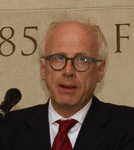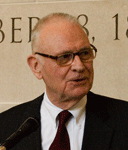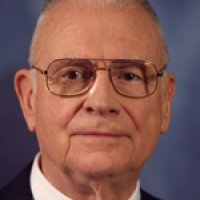Reception: Environment, Conflict, and Cooperation Exhibition
Environmental issues have played a part in some of world's worst conflicts, but they can also help build peace. These issues are the focus of a multimedia exhibit created by Berlin's Adelphi Research.
Overview
Environmental issues—water, climate, land, forests, and minerals—have played a part in some of world's worst conflicts. But these resources can also help build peace. These issues are the focus of a multimedia exhibit, "Environment, Conflict, and Cooperation," on display through April 20, 2007, in the Wilson Center Memorial Hallway.
Created by Berlin's Adelphi Research at the initiative of the German Federal Foreign Ministry, the exhibit aims to addresses three questions:
- Why do changes in our natural environment threaten people and livelihoods?
- Does the exploitation of natural resources lead to violent conflict?
- How can sustainable development and environmental cooperation contribute to stability and peace?
 More than 100 people gathered at the exhibit opening on April 3, 2007, to explore the interactive displays of photos, text, and video. Johannes K. Haindl, Chargé d'Affaires of the Embassy of Germany, noted that the picture before exhibit attendees may look bleak: "What you will see here will not make you feel good. But it is of paramount importance. This exhibition shows how man-made environmental changes will affect our foreign and security policy. Crises that are exacerbated or even caused by environmental destruction will increasingly dominate the international agenda."
More than 100 people gathered at the exhibit opening on April 3, 2007, to explore the interactive displays of photos, text, and video. Johannes K. Haindl, Chargé d'Affaires of the Embassy of Germany, noted that the picture before exhibit attendees may look bleak: "What you will see here will not make you feel good. But it is of paramount importance. This exhibition shows how man-made environmental changes will affect our foreign and security policy. Crises that are exacerbated or even caused by environmental destruction will increasingly dominate the international agenda."
Yet, as the exhibit shows, the environment needs not always be a source of tension and conflict. Cooperative resource management will be vital in an increasingly interdependent world, Haindl added: "[W]e live in a global village where neighbors have to rely on each other. That is why environmental cooperation, above all climate protection, is so important to long-term conflict prevention."
 Calling for a long-term vision, Lee H. Hamilton, president of the Woodrow Wilson International Center for Scholars, said, "This exhibition offers a fascinating and illuminating look at a range of challenges…. I hope that we leave here with this goal of seizing opportunity amidst uncertainty…. [W]e at the Center will continue to place a high priority on searching for ways to make our environment part of the solution, not simply a problem to be managed."
Calling for a long-term vision, Lee H. Hamilton, president of the Woodrow Wilson International Center for Scholars, said, "This exhibition offers a fascinating and illuminating look at a range of challenges…. I hope that we leave here with this goal of seizing opportunity amidst uncertainty…. [W]e at the Center will continue to place a high priority on searching for ways to make our environment part of the solution, not simply a problem to be managed."
Speakers
Hosted By

Environmental Change and Security Program
The Environmental Change and Security Program (ECSP) explores the connections between environmental change, health, and population dynamics and their links to conflict, human insecurity, and foreign policy. Read more
Thank you for your interest in this event. Please send any feedback or questions to our Events staff.











